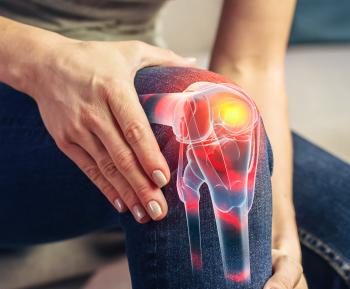Treating Knees with stem cells
Regenerative medicine in the form of stem cell therapies and treatments are useful and effective at dealing with various bodily ailments, including arthritis, knee issues, shoulder issues, and other similar afflictions. Athletes are most commonly afflicted by knee injuries, pain, and inflammation, but anyone can suffer.
Stem cell therapy is a non-invasive, healthy, and effective method of bringing back knee mobility, reducing and removing pain altogether, and restoring the healthy predisposition all people deserve to have.
Some symptoms of knee problems can include:
- Knee pain
- Worsened mobility
- Knee inflammation
Regenerative stem cell therapy for Knees
Our state-of-the-art stem cell technology is used to treat a wide variety of knee afflictions, including cartilage degeneration, knee osteoarthritis, a torn MCL, ACL, or meniscus. Stem cell therapy is both affordable and highly efficient at helping patients’ knees heal.
The whole process is painless, and the therapy usually lasts for a few weeks. Recovery times differ from patient to patient based on their current health, past afflictions, acute conditions, and the quickness with which the body can repair the damaged area with the provided stem cells.

Knees Treatment Plan
Our treatment plans generally last between 2 and 5 weeks, depending on your overall health, your condition, and the severity of your Knees symptoms. Anyone can sign up for stem cell treatment for Knees. Each stem cell treatment candidate will receive a tailored plan to help achieve the highest success rate for maximum therapy efficiency. Typically, stem cell therapy for Knees will resemble a program such as the one below, and will last for 3 days. We do not provide one-off injections, but do include local knee injections in our other comprehensive packages.

Stem cells
3 stem cell IVs

Plurisomes
2 Plurisomes IVs

Peptides & Nutraceuticals
regular peptide & nutraceutical IVs

Chelation
regular CaNa2 EDTA IVs
Treatments
- Anti-Aging
- Alzheimer's disease
- Arthritis
- Back Pain
- Brain Injury
- Cerebral Palsy
- COPD
- Diabetes
- Fibromyalgia
- Heart disease
- Knees
- Guillain Barré Syndrome
- Lyme disease
- Multiple Sclerosis
- Neck Pain
- Nerve Damage
- Neuropathy
- Opioid Addiction
- Pain Management
- Parkinson's disease
- Post-Viral Syndrome
- Pulminary Fibrosis
- Rheumatoid Arthritis
- Scleroderma
- Shoulder Pain
- Facelift
- Stroke
- Treated by Stem Cells

Benefits of stem cell therapy for Knees patients
Stem cell treatments of any kind come with a wide variety of benefits, depending on the affliction being treated. When it comes to stem cell treatment for knees, these three are the biggest:
-
Slow the degradation of cartilage and repair damaged cartilage
The older we get, the more our cartilage degenerates beyond repair, directly impacting our mobility. Cartilage can also be damaged through injury or fatigue. Patients whose cartilage has been confirmed damaged can greatly benefit from stem cell therapy.
-
Reduce pain and decrease knee inflammation
When the knee and its ligaments are damaged, sharp pain ensues until it’s healed. Traditional therapies that attempt to restore mobility in patients' knees through careful physical activity cannot reduce the amount of pain felt during the process.
-
Delay and prevent the need for knee replacement procedures
If the knees were exposed to exceptional stress and used profoundly during one’s life (high-intensity sports, accidents, injuries, etc.), they’ll most likely become irreversibly damaged. In such situations, a knee replacement surgery may be required to maintain the patient's quality of life.
Stem cell therapy has proven excellent in staving off the need for knee replacement surgery due to its regenerative properties.
Frequently Asked Questions
-
How does stem cell therapy work to heal knee damage?
Our stem cell therapy helps repair knee damage by reducing inflammation and promoting natural tissue regeneration. These powerful cells release healing signals that encourage the body to repair cartilage, ligaments, and other joint structures.
When injected locally or given through IVs, the stem cells detect damaged tissue in the knee and release molecules that trigger healing. This process can reduce pain, rebuild cartilage, and improve joint mobility, especially for conditions like osteoarthritis or meniscus tears.
Treatment plans may last from a few days to two weeks, depending on the injury’s severity. The goal is to relieve pain, restore movement, and support long-term joint health.
-
Who is a good candidate for knee stem cell therapy?
A good candidate for knee stem cell therapy is someone dealing with joint pain, inflammation, or cartilage damage who wants to avoid or delay surgery and support natural healing.
This therapy is ideal for people with osteoarthritis, meniscus tears, or other knee injuries caused by wear, inflammation, or trauma. It helps reduce pain, improve mobility, and promote cartilage repair, even in cases where joints are described as “bone on bone.”
Younger patients with mild injuries may benefit from a short 3-day treatment, while those with chronic or advanced joint conditions often need a longer 2-week program.
Patients taking immunosuppressant medications should stop them before treatment, as they interfere with the regenerative process.
-
When can patients expect to see improvement in pain or function after pluripotent stem cell therapy for knees?
Most patients begin to notice changes within a few weeks of starting pluripotent stem cell therapy, with continued improvement over the following three to six months.
In the first two to three weeks, the body redirects energy toward healing. During this phase, mild fatigue or temporary achiness is common as inflammation decreases and repair begins. This early discomfort is a normal part of the recovery process.
Over the next several months, the stem cells and Plurisomes™ continue releasing healing signals that regenerate tissue, reduce inflammation, and restore function. Improvements in pain, flexibility, and joint strength develop gradually, often becoming more noticeable around the three-month mark and continuing to build up to six months.
-
What is the recovery process like after knee pluripotent stem cell therapy?
Recovery after knee stem cell therapy is generally smooth and focused on allowing the body to heal naturally. In the first two to three weeks, patients may feel mild fatigue or soreness around the knee as the body redirects energy toward deep healing. This temporary discomfort is a positive sign that regeneration has started.
During this time, it’s best to rest and avoid intense exercise, sticking to light activities to support the therapy’s effects. Patients can resume normal routines gradually.
Over the next three to six months, steady improvements in pain relief, mobility, and joint strength continue as the stem cells and Plurisomes™ repair tissue and reduce inflammation. Results can be long-lasting with proper care and healthy habits.


